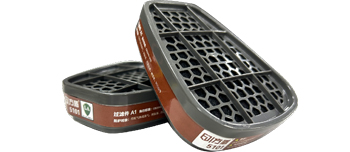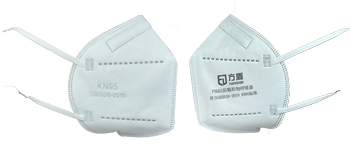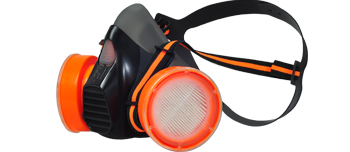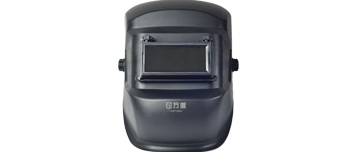Basic functions of gas masks
Gas masks were originally designed to protect against toxic gases, vapors, and harmful chemicals by adsorbing or decomposing these harmful substances through special filter materials. These types of masks usually contain activated carbon layers or other chemical filtering media, which can effectively intercept and neutralize various industrial chemicals and toxic gases.
Protective effect on dust
Although the main purpose of gas masks is to prevent gas rather than dust, most gas masks can indeed provide a certain degree of dust prevention effect:
Physical filter layer: Modern gas masks typically have multiple layers of built-in structure, including a non-woven filter layer that can block particulate matter
Sealed design: Compared with ordinary masks, gas masks often have better facial fit, reducing the possibility of dust entering from the edges
Composite protection: Some high-end models combine the dual functions of particle filtration and chemical protection
Comparison of protective effects
Compared with professional dust masks, gas masks have some differences in dust prevention:
Filtration efficiency: Professional dust masks (such as N95) can achieve a filtration efficiency of over 95% for 0.3 micron particles, while the particle filtration efficiency of gas masks depends on the specific model
Respiratory resistance: Due to the multi-layer design, gas masks may have higher respiratory resistance and may not be as comfortable as dust masks when worn for a long time
Cost of use: Gas masks are usually expensive, and the filter elements have a lifespan, making it uneconomical to use them for dust prevention
Suggested Applicable Scenarios
In the following situations, gas masks can temporarily replace dust masks:
Short term exposure to dust environment without professional dust prevention equipment
Composite pollution environment with toxic gases and dust present simultaneously
As an emergency use, when professional dust masks are not available
But for long-term, professional dust prevention needs, especially in industrial sites or high concentration dust environments, it is recommended to choose professional dust masks or masks to ensure the best protective effect and wearing comfort.
Precautions for use
Confirm if the mask also has particle protection certification
Regularly replace the filter material to avoid a decrease in filtration efficiency
Ensure correct wearing and perform a sealing check
In extreme dust environments, higher-level protective equipment should be considered
In short, gas masks can provide a certain degree of dust protection, but for pure dust prevention needs, professional dust masks are usually a more economical and comfortable choice. Users should choose appropriate protective equipment based on their specific environment and protection needs.
 English
English





